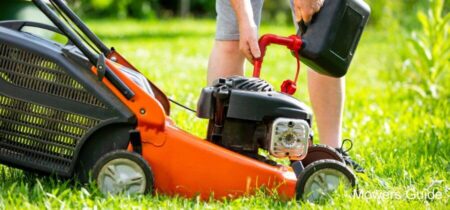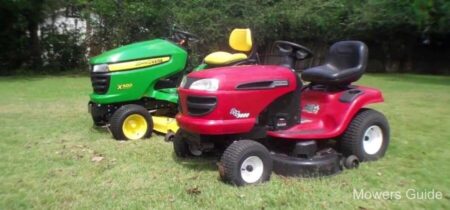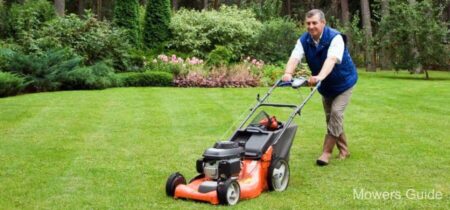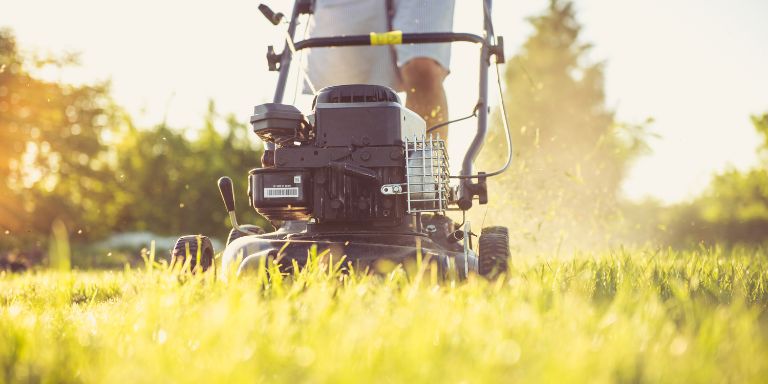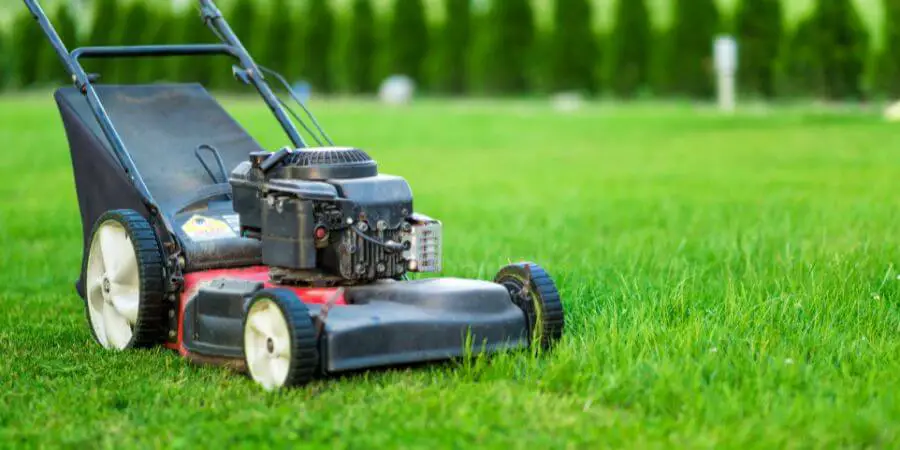You finally invested in that Husqvarna riding mower you’ve had your eye on for ages. Now that you have your hands on this model, you want to make sure you treat it right so it’ll last you for years to come. The key is using the proper oil and changing it regularly.
Now you just need to make sure you’re using the right motor oil to keep that riding mower going for years to come. For a Husqvarna riding mower, you’ll want to use a high-quality motor oil that’s specifically formulated for small engines like the one powering your new set of wheels. The last thing you want is to use the wrong oil and end up with a seized engine or other damage.
As the owner of a Husqvarna riding mower, you have some choices to make when it comes to choosing the motor oil. Do you go synthetic, conventional, or a blend? What about the viscosity? Do you need thicker or thinner oil for your climate? You probably have a lot of questions and just want to know the straight scoop on the best oil for your mower.
Well, you’ve come to the right place. We’ve researched to determine the optimal types of motor oil for Husqvarna riding mowers based on extensive field testing and reviews. Our goal is to give you the information you need to choose the right oil to maximize the performance and life of your Husqvarna. Keep reading to find out which oil we recommend for your riding mower.
Husqvarna Riding Mower Oil Type
For your Husqvarna riding mower, you’ll want to use Husqvarna’s 4-stroke multi-viscosity oil. This oil is specifically formulated for their mowers and contains additives to keep your engine running smoothly and efficiently.
10W-30 or 10W-40?
Either viscosity will work well in most conditions, but 10W-30 may be a bit better for most homeowners. It flows better in warm weather, so your mower will start easier and run cooler. 10W-40 is a bit thicker and may perform marginally better in very hot weather or if you have high hours on your engine. But for typical mowing, 10W-30 is versatile and will suit you fine.
No matter which you choose, be sure to change the oil regularly—every 50 hours of mowing or once a season is recommended. Clean oil is essential for your mower to run well and last a long time. An oil change only takes about 30 minutes but can add years to your engine’s life.
Don’t use just any oil; get the good stuff. Husqvarna’s oil has special conditioners and additives to protect mower engines, which work hard under demanding conditions. Their oil helps prevent buildup, reduces wear, and keeps parts lubricated. Using generic or automotive oil could void your warranty and shorten your mower’s lifespan.
For the best performance and longest life from your Husqvarna riding mower, stick with their recommended oil. Your mower deserves nothing less! Keeping up with routine maintenance like oil changes will ensure it runs great for years to come.
Husqvarna Lawn Mower Oil Capacity
To keep your Husqvarna riding mower running strong, you’ll want to use oil specifically formulated for air-cooled 4-stroke engines. The exact type of oil will depend on your mower’s engine and the ambient temperatures where you’ll be mowing.
For most Husqvarna riding mowers, you’ll use SAE 30 motor oil. This lightweight, detergent-based oil works great in warm weather. If you’re mowing in very hot temperatures (over 90 F), you’ll want to use 10W-30 motor oil instead, as its lighter viscosity will keep your engine properly lubricated.
In colder temperatures, use SAE 10W-30 motor oil or even 5W-30. These lower-viscosity oils flow better in cold weather, allowing for easier engine starts.
Oil Capacity
The oil capacity for your Husqvarna riding mower engine is typically around 1.5 to 2 quarts. You’ll find the exact amount listed in your owner’s manual. Be sure to check your mower’s oil level with the dipstick before first starting the engine, and add oil as needed.
Using the proper type and amount of oil recommended for your specific Husqvarna mower model is key to keeping its engine running strong and avoiding costly damage. So choose your oil wisely and change it regularly according to the schedule in your owner’s manual. Your mower will thank you for years of faithful service.
How to Choose the Right Type of Oil for Your Husqvarna Riding Mower?
When it comes to choosing the right motor oil for your Husqvarna riding mower, you have a few good options to consider:
Conventional Oil
Conventional oil, like 10W-30, is a popular and affordable choice for many mower owners. It works well in a range of temperatures and weather conditions. Conventional oil needs to be changed more frequently, about every 50–100 hours of use.
Synthetic Oil
Synthetic oils, like Mobil 1 or Castrol GTX, are highly advanced and provide maximum protection for your mower’s engine. Synthetic oil lasts 2-3 times longer than conventional oil, up to 150–300 hours. It flows better in extreme heat and cold. However, synthetic oil tends to cost significantly more.
Semi-Synthetic Oil
A good compromise is a semi-synthetic oil, which blends synthetic and conventional oils. Brands like Pennzoil and Valvoline make semi-synthetics that provide solid protection for 75–150 hours between oil changes at a lower cost than full synthetics.
In the end, you need to weigh the pros and cons of each type based on your mowing frequency, climate conditions, and budget. For the best performance and longest life of your Husqvarna mower, be sure to check your owner’s manual for the recommended oil type and change interval. Following the guidelines specific to your mower model will help ensure you choose the right oil for the job.
Diesel Motor Oil
Diesel motor oil: If your Husqvarna mower has a diesel engine, use heavy-duty diesel oil, such as Shell Rotella or Chevron Delo. Look for an oil with a viscosity rating of 15W-40.
In the end, the type of oil you choose depends on your needs and budget. For most homeowners, a synthetic blend or conventional oil will work great for routine maintenance. But if you want the best protection for your mower, especially in extreme weather conditions, a full synthetic is your best bet.
Be sure to follow the recommendations in your mower’s manual for the appropriate viscosity and capacity. For the best performance, change your oil regularly according to the schedule recommended in your manual.
Recommended Engine Oil Types for Husqvarna Riding Mowers
For most Husqvarna riding mower models, you’ll want to use SAE 30 motor oil, like Briggs & Stratton 30W or equivalent. This is a good multi-purpose oil that works well in most temperatures. In very hot weather, you can go up to 10W-30 for better viscosity. In cooler temperatures, 20W-50 will do the trick.
No matter which weight you choose, be sure to use a high-quality detergent motor oil that meets or exceeds the SG, SF/CC, or SJ service classification. These oils have additives to prevent buildup and keep your engine clean. Popular, reputable brands for small engines include Briggs & Stratton, Castrol, Pennzoil, and Quaker State.
Avoid using automotive oils, as they lack the additives needed for air-cooled small engines. And never use 2-stroke oil, transmission fluid, or kerosene; they will damage your engine!
About once a season or every 50 hours of use, change your Husqvarna’s oil filter and replace the drain plug washer. This, along with an annual tune-up, regular maintenance, and the use of the proper type of high-quality motor oil, will help keep your riding mower running strong for years to come.
So stock up on that SAE 30 detergent motor oil and get ready to mow—your lawn is waiting! With the right fluids and care, your Husqvarna will be your trusty grass-cutting companion for seasons to come.
How Often to Change the Oil in Your Husqvarna Riding Mower?
To keep your Husqvarna riding mower running strong, you’ll want to change the oil regularly. For most models, an oil change every 50 hours of use or once a season is recommended.
Fresh oil is essential for lubricating the engine and preventing overheating. As oil gets older, it loses viscosity and won’t protect parts as well. It also collects contaminants like dirt and metal filings that can damage components over time.
- To change the oil, run the engine for a few minutes to warm it up. Then shut off the mower and let it sit for at least 30 minutes so the oil can drain.
- Locate the drain plug—usually at the base of the engine—and place a pan underneath to catch the used oil. Loosen and remove the plug to drain the oil.
- After it’s drained, replace the drain plug and pour in the new oil through the filler hole. For most Husqvarna mowers, you’ll want SAE 30 high detergent oil. Double-check your owner’s manual for the correct type and capacity.
- Start the mower and check for leaks. Let it run for a few minutes. Shut it off and recheck the oil level with the dipstick to make sure it’s in the safe range.
Fresh, clean oil and a well-maintained engine will help your Husqvarna riding mower last for years to come. Be diligent about changing the oil; it’ll pay off with reliable, trouble-free cutting power season after season. Keeping your mower in tip-top shape means more time enjoying the results of your yardwork and less time fixing equipment—and that’s a win-win.
Few Tips to Change Oil in Husqvarna
When it comes time to change the oil in your Husqvarna riding mower, you’ll want to use oil specifically formulated for small engines like mowers and generators. The most common types are SAE 30 or 10W-30, but check your mower’s manual for the recommended viscosity.
For the average homeowner, a standard SAE 30 motor oil will work great for most Husqvarna mowers. This is a lightweight, all-purpose oil suitable for most small engine applications. You can find this at any auto parts store or home improvement center. Some good brand options are Castrol, Valvoline, Pennzoil, or Quaker State.
Synthetic oils like Mobil 1 or AMSOIL are also options if you want maximum engine protection under heavy or commercial use. However, standard conventional oil will work fine for typical residential mowing and save you some money.
A few tips for oil changes:
- Drain the old oil when the engine is warm, then refill with the recommended amount of new oil. This is usually around 2 to 3 quarts for most riding mowers.
- Change your mower’s oil filter at the same time as the oil. The filter removes contaminants and needs to be replaced periodically.
- Dispose of used motor oil properly at a designated location or recycling center. Do not pour down storm drains, in the gutter, or on the ground.
- Check your mower’s manual for the recommended oil change interval. This is usually every 25 to 50 hours of runtime for residential mowers.
- If your mower will be idle for an extended period, consider doing an oil change beforehand. Fresh oil will prevent corrosion and keep parts lubricated, even when not in use.
- Consider using a specialized small engine oil with additives to prevent gunk and sludge buildup on older, high-mileage mowers.
Following these tips and using the proper type of motor oil formulated for small engines will keep your Husqvarna mower running strong and prevent premature engine wear. Be sure to refer to your owner’s manual for any specific guidance on oil type and maintenance.
Conclusion
So now you know the recommended oil for your Husqvarna riding mower. Regularly changing the oil is one of the best things you can do to keep your mower running strong for years to come. Don’t skimp on this important maintenance task; it will save you money and headaches down the road.
Now that you’re armed with the right information, go ahead and pick up a few quarts of the recommended oil and get ready for the mowing season. Your Husqvarna will thank you, and your lawn will look better than ever. Following the manufacturer’s guidelines for your equipment is always the wisest choice.
FAQs
What is the ideal riding mower oil?
In warmer climates, SAE 30 is the most widely used standard. For changing temperature ranges and for starting in cold areas, SAE 10W-30 is the best choice. Potentially increased oil usage is the price to pay in this situation. Your riding lawn mower can also use synthetic oil.
Can I swap 10w30 for 10w40?
Between 10W-30 and 10W-40 motor oil, there isn’t much of a difference. More so than anything else, temperature changes and engine load distinguish them. Either engine oil grade should function properly in moderate weather. As you start encountering hot-button issues, your decisions will become even more important.
On my riding mower, can I use ordinary motor oil?
The standard motor oil grade for many lawn mowers is 10W30. The precise grade needed will be specified in your owner’s manual, although 10W30 is typically the best option for four-stroke engines. Any oil appropriate for vehicles or trucks will function flawlessly on lawn mowers.
For more mower related tips visit here and for more guides related to mowers visit Mowers Guide



